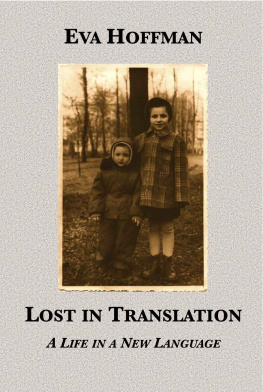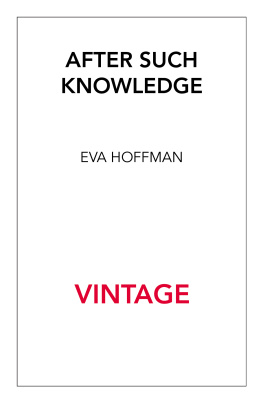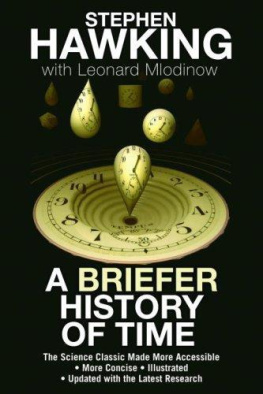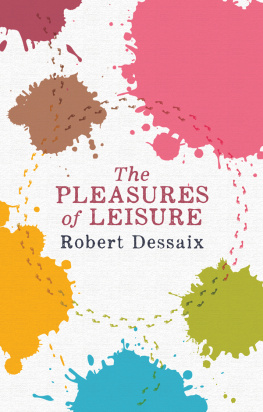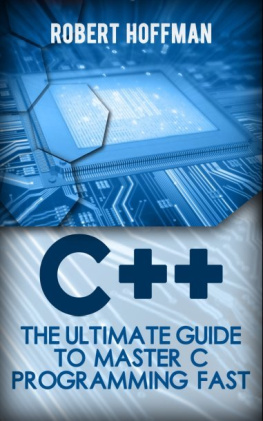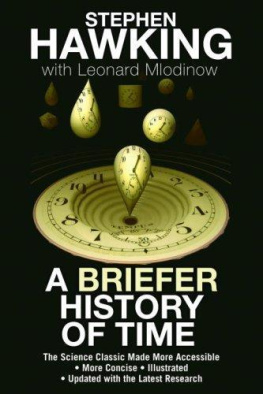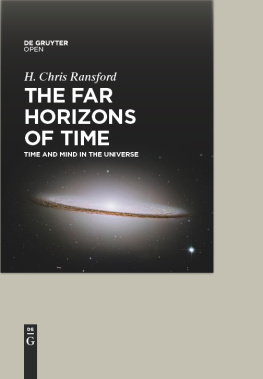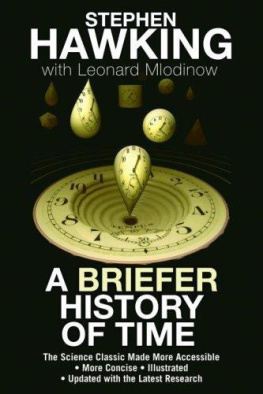TIME
What makes this book so original is the way
Hoffman uses the tools of contemporary science
her description of our subjective inner world is most
arresting Independent
An amenable and engaging study which incorporates
cultural references to further endear itself to the reader.
A topical study that should elicit a moment of pause
among those of us in a real hurry Sunday Business Post
Written with a nicely leisured elegance, and contains
many intriguing parts eye-opening Guardian
EVA HOFFMAN is the author of Lost in Translation,
Shtetl, The Secret, After Such Knowledge and
Illuminations. She is the recipient of a Guggenheim
Fellowship and the Whiting Award for Writing, and
has lectured internationally on issues of memory,
history, culture and multiculturalism. Her essays and
journalism have appeared in numerous publications
including the New York Times, the New York Review of
Books and the Guardian.
BIG IDEAS
General editor: Lisa Appignanesi

As the twenty-first century moves through its tumultuous first decade, we need to think about our world afresh. Its time to revisit not only politics, but our passions and preoccupations, and our ways of seeing the world. The Big Ideas series challenges people who think about these subjects to think in public, where soundbites and polemics too often provide sound and fury but little light. These books stir debate and will continue to be important reading for years to come.

Other titles in the series include:

Julian Baggini Complaint
Jenny Diski The Sixties
Paul Ginsborg Democracy
Ian Hacking Identity
Steven Lukes Moral Relativism
Susie Orbach Bodies
Renata Salecl The Tyranny of Choice
Slavoj iek Violence
TIME
Eva Hoffman

This paperback edition published in 2011
First published in Great Britain in 2009 by
PROFILE BOOKS LTD
3A Exmouth House
Pine Street
London EC1R OJH
www.profilebooks.com
Copyright Eva Hoffman, 2009, 2011
Extracts: Burnt Norton (p. vii) is taken from T. S. Eliots Four Quartets
(Faber and Faber, 2001), and Reference Back (p. 112) is from Philip
Larkins Collected Poems (Faber and Faber, 2003). Both are reproduced
with the kind permission of Faber and Faber.
1 3 5 7 9 10 8 6 4 2
Typeset in Minion by MacGuru Ltd
info@macguru.org.uk
Printed and bound in Great Britain by
CPI Bookmarque, Croydon, Surrey
The moral right of the author has been asserted.
All rights reserved. Without limiting the rights under copyright
reserved above, no part of this publication may be reproduced, stored
or introduced into a retrieval system, or transmitted, in any form or
by any means (electronic, mechanical, photocopying, recording or
otherwise), without the prior written permission of both the copyright
owner and the publisher of this book.
A CIP catalogue record for this book is available from the
British Library.
ISBN 978 1 84668 043 4
eISBN 978 1 84765 259 1

CONTENTS
Time and the Body
Time and the Mind
Time and Culture
Time in Our Time
How sour sweet music is
When time is broke and no proportion kept!
So is it in the music of mens lives.
Shakespeare, Richard II
But at least, if strength were granted me for long enough
to accomplish my work, I should not fail to describe
men first and foremost as occupying a place, a very
considerable place compared with the restricted one
which is allotted to them in space, a place, on the contrary
prolonged beyond measure in the dimension of Time.
Marcel Proust, Remembrance of Things Past
Time present and time past
Are both perhaps present in time future,
And time future contained in time past
What might have been and what has been
Point to one end, which is always present.
T. S. Eliot, Four Quartets, Burnt Norton
INTRODUCTION
Let me begin with a confession: I have always been preoccupied by time. Whether this propensity was temperamental, or whether in some way it belonged to the place and historical moment in which I was growing up, I am not sure. But I do know that it started early, and has continued throughout my adult life.
Perhaps, like the young Vladimir Nabokov, I was simply a kind of chronophobiac. Certainly, I was intensely and palpably aware of times existence and its ceaseless passage. Reading some childhood story, in which the ticking of a clock measures the silent night, I would start listening to the clock in my own room, aware that each tick-tock was irreversible, and that the stealing of time, second by second, would never stop. When I walked home from school on some warm afternoon, I was conscious that with each step taken a moment was receding behind me into the past, that the number of such moments a life had in it was finite and that the only way to preserve them in some way was to hold them in my mind; in memory. I would remember this moment, I would say to myself; that way, it would not be entirely lost.
Children are natural philosophers; I suspect that more of them experience metaphysical sensations than we know. Nabokov became aware that he existed in the pure element of time at the age of four, and he compared the birth of this consciousness to a second baptism, on more divine lines than the Greek Catholic ducking seen performed on his younger brother. Perhaps my own exacerbated sense of times unstoppable passage arose out of the climate in which my childhood took place. I grew up in Poland, shortly after the war that is, on the territory of vast death. The presence of mortality was pervasive and inescapable there. We post-war children knew in our bones that life was a provisional condition; that it could be cut arbitrarily; that its finitude was wrested briefly from deaths infinity.
These, to be sure, were powerful circumstances; but perhaps they suggest that our basic vision of time can be established quite early, and may be informed by the cultural and historical context we arrive into. But there was another kind of time I was aware of (for various temporalities can coexist, and be folded into each other as subatomic dimensions are apparently folded into each other in the cosmos). This was the ordinary time of our daily lives, and of the human activity all around us. That time moved at an unhurried, temperate, seemingly just-right pace. Of course, what I was experiencing was the unrushed time, the tempo giusto of childhood; but even adult time in Cracow during those years seemed to move more slowly than in any of the places I lived in since then. I dont think this was merely a lyrical illusion. Rather, as I reflect on it in retrospect, I see that this earlier, slower tempo was partly a function of the actual conditions of peoples lives and partly a question of cultural ethos or temper. Poland in the post-war decades was an impoverished country and an economically static society. Under the aegis of centralised communism, there were no great careers to be made, no glamorous possibilities of upward mobility or the seductive temptations of acquiring great wealth. There was really nothing much to hurry towards. The famous motto of those days, We pretend to work, and they pretend to pay us, summarised in a joke what was often a grim material reality, the downside of social stasis.


